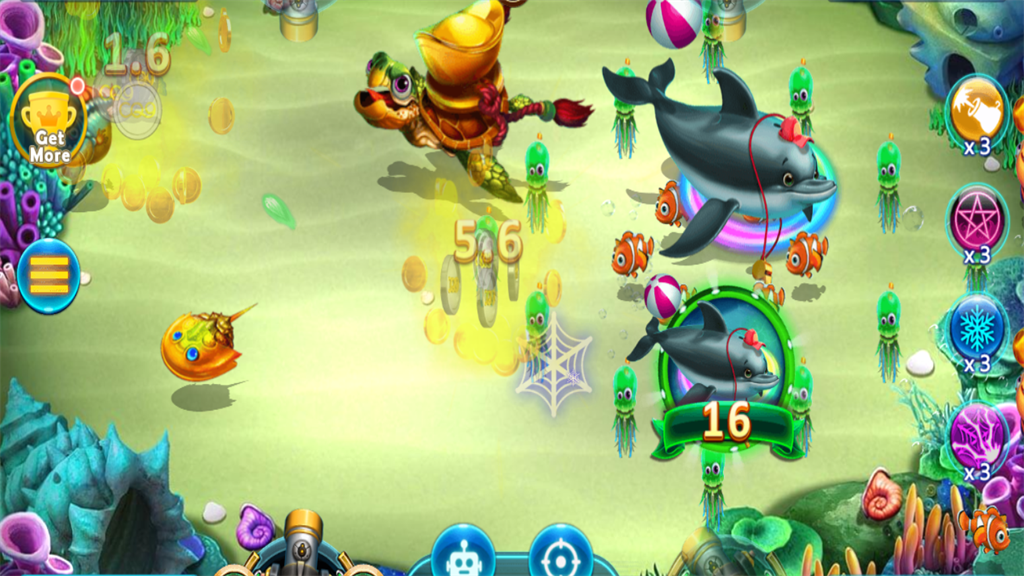

สล็อตเว็บตรง ไม่ผ่านเอเย่นต์ สล็อตวอเลท แตกง่าย ไม่มีขั้นต่ำ PG SLOT ใหม่ล่าสุด เว็บสล็อตแท้ 100%
สล็อตเว็บตรง ไม่ผ่านเอเย่นต์ สล็อตวอเลท ให้บริการเกมสล็อตแตกง่าย แตกบ่อย ที่คุณจะได้รับเงินแบบจุใจ เป็นหนึ่งในเว็บสล็อต PG SLOT เว็บตรง ที่ได้รับความนิยมมากที่สุด เพราะเล่นง่ายและเป็นที่ชื่นชอบของนักพนันทั่วโลก ด้วยเกม สล็อตแตกง่ายแตกหนัก เว็บสล็อต อันดับ 1 ใหม่ล่าสุด ที่ชนะง่ายและจ่ายรางวัลสูงให้เลือกมากมาย สล็อตออนไลน์ ได้เงินจริง

สล็อตเว็บตรง ไม่ผ่านเอเย่นต์ เป็นแพลตฟอร์มเว็บสล็อต ที่คนเล่นเยอะที่สุด สล็อตออนไลน์ที่ดีที่สุด คุณสามารถเล่น เว็บสล็อตตรง ไม่ผ่านเอเย่นต์ มีความน่าเชื่อถือ สล็อตต่างประเทศ สล็อต ฝากถอน true wallet เว็บตรง ล่าสุด บนสล็อตเว็บตรงได้รับการจัดอันดับ เว็บสล็อตทรูวอลเลท ฝากเงิน ถอนสบาย ไม่มีขั้นต่ำ ให้มาแรงเป็นอันดับ 1 ของโลก เริ่มเล่น สล็อตออนไลน์ ได้เงินจริง สล็อตฝากถอน true wallet เว็บตรง ที่ให้แจ็คพอตแตกหนัก แตกจริง ตลอด 24 ชั่วโมงทุกวัน
พร้อมการมีระบบฝาก-ถอน เว็บสล็อตใหม่ล่าสุด เว็บตรง ของโลก ที่สะดวกที่สุด และให้บริการ True Wallet ฝากได้ทันที โดยไม่ต้องโอนเงินให้ยุ่งยาก นำเสนอ สล็อตแตกหนัก แตกจริง หลากหลายประเภท มี เว็บสล็อตออนไลน์ ที่ดีที่สุด แจ็คพอตใหญ่ และสล็อตจากผู้ให้บริการเกมต่าง ๆ ที่มีคุณภาพมากที่สุด ด้วยเกม สล็อตทรูวอลเลท สล็อตเว็บตรง true wallet ไม่มีขั้นต่ํา ที่มีมากกว่า 500 เกม
คุณสามารถเพลิดเพลินกับบริการของทางเว็บ สล็อตเว็บตรงไม่ผ่านเอเย่นต์ โดยไม่มีความเสี่ยงใด ๆ ยิ่งคุณเล่น เว็บสล็อตออนไลน์ อันดับ 1 มากเท่าไหร่ คุณก็จะได้รับผลกำไร สล็อตออนไลน์ ที่ดีที่สุด มากขึ้นเท่านั้น

สล็อตวอเลท (Slot Wallet) ปั่นสล็อตเว็บตรง ไม่ผ่านเอเย่นต์ คืออะไร?
สล็อตวอเลท คือ สล็อตเว็บตรงที่เล่นผ่านระบบ ทรูวอเลท (Slot Wallet) สามารถเล่นบนเว็บสล็อตตรงไม่ผ่านเอเย่นต์ ทำธุรกรรมได้ไม่ต้องมีบัญชีธนาคาร เว็บสล็อตวอเลท มีข้อดีมากมาย อาทิเช่น มีระบบปลอดภัยสูง, ฝากถอนไม่มีขั้นต่ำ 1 บาทก็ฝากได้ และไม่ต้องฝากผ่านธนาคารอีกด้วย โดยรวมแล้วระบบสล็อตเว็บตรงทรูวอเลทล่าสุด จะมีความมั่นคงมากกว่าเว็บสล็อตออนไลน์ทั่วไปเป็นอย่างมาก ให้คุณสามารถปั่นสล็อตได้อย่างมั่นใจ
สล็อตเว็บตรง คือ สล็อตออนไลน์ที่สามารถเล่นผ่านเว็บตรง API แท้จากเซิฟเวอร์หลัก ไม่ผ่านระบบกลาง ไม่ผ่านเอเย่นต์ ไม่ผ่านตัวแทนใดๆ สล็อตเว็บตรงมีเกมค่ายดังให้เลือกเล่นมากที่สุด
ยกตัวอย่างเช่น PG SLOT เว็บตรง (ค่ายเกมพีจีสล็อต) เป็นต้น ข้อดีของเว็บสล็อต PG ที่เป็นเว็บตรงของแท้ ไม่ผ่านเอเย่นต์ คือ ระบบฝากถอนไม่มีขั้นต่ำ มีความปลอดภัยระดับสูง มีระบบทรูวอเลท ที่สำคัญคือระบบการเงินที่มีเสถียรภาพสูง เทียบเท่าเว็บสล็อตระดับโลกเลยก็ว่าได้

PG SLOT เว็บตรง แตกหนัก เกมสล็อต PG อันดับ 1 ระบบ Auto PG Wallet
PG SLOT เว็บตรง คือ สล็อตเว็บตรง อันดับ 1 เป็นหนึ่งในค่ายที่เว็บสล็อต PG ทั้งหมดต้องมีในระบบ เพราะ สล็อต PG เว็บตรง แตกหนัก แตกง่ายที่สุด ในสล็อตออนไลน์ทั้งหมด มีการอัพเดทเกม PG Slot ใหม่ล่าสุดอยู่เป็นประจำ ทำให้นักปั่นสล็อตทั้งหลาย ต้องการเล่น PG Slot เว็บตรง มากที่สุด
ไม่เพียงเท่านี้ เว็บสล็อต PG ยังมีระบบ Auto PG Wallet ซึ่งช่วยทำให้ ฝาก-ถอนไม่มีขั้นต่ำ และ ไม่ต้องมีบัญชีธนาคาร เป็นอีกหนึ่งระบบ PG Slot True Wallet ที่หลายคนต้องการอีกด้วย
นอกจากนั้นเกม PG SLOT ยังมีการอัพเดทเกมสล็อตใหม่ๆอยู่ตลอดเวลา และยังนับว่าเป็นค่ายเกมสล็อตเว็บตรง ที่มีเกมสล็อตแตกหนักมากที่สุด โดยเฉพาะเกม Dragon Hatch และ Lucky Piggy ที่มีการจัดสถิติของระบบหลังบ้านว่าเป็น เกมสล็อตแตกง่าย อันดับ 1 ยังไม่รวมเกม Fortune Tree ที่ทำออกมาหลายเวอร์ชั่น การันตีว่าเล่นสนุก ได้เงินจริง ไม่ล็อคยูส PG SLOT เว็บตรง คือตอบโจทย์มากที่สุด

โปรโมชั่นล่าสุด
สมาชิกใหม่











